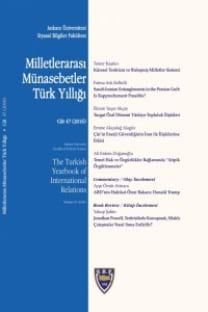Religion, Settlements and Israel’s Relations with Palestinian Arabs
Religion, Settlements and Israel’s Relations with Palestinian Arabs
The emergence of Israel as an independent state shows the importance of religious identity in shaping political outcomes. Israel has been the fulfilment of the Zionist vision of Palestine as a homeland for Jews throughout the world from different backgrounds, and the founding leadership tried to create a state running with secular rather than religious principles. However, after the 1967 war added to Israel the territories that constituted the core of the biblically promised lands, namely the West Bank described in Israeli parlance as Judea and Samaria and East Jerusalem with the Temple Mount, which are the holiest places in Judaism, tens of thousands of religious Jews began to settle in those areas. They have high birth rates and their beliefs cause frictions between different levels of Israeli society. Moreover, they carry weight in Israeli politics far in excess of their numbers and occupy key positions in the military, the government, and various layers of the bureaucracy. They can affect the decision-making process in government circles and provide a support base for religious militants. Moreover, they strengthen the struggle against territorial withdrawals and may be seen as an obstacle for peace. This paper examines the role of religion in foreign policy in Israel with particular reference to religious Zionism. It explores the influence of religion in shaping the policy towards Palestinians in Jerusalem and the West Bank. The argument is that for Israel, it is imperative to balance the effects of religious nationalism if it wants to reach a permanent peace and ensure its security
- ISSN: 0544-1943
- Yayın Aralığı: Yıllık
- Başlangıç: 1960
- Yayıncı: Ankara Üniversitesi Siyasal Bilgiler Fakültesi Uluslararası İlişkiler Bölümü
Sayıdaki Diğer Makaleler
Non-Traditional Security Issues of the Western Balkan: Actors, Causes and Implications
“The Changing Dynamics of the Foreign Policy of China in Contemporary Time”
Raja Qaiser AHMAD, Dr. M. Sheharyar KHAN, Muhammad SHOAİB
Religion, Settlements and Israel’s Relations with Palestinian Arabs
Understanding of the Turkish Constitutional Court Regarding Unitary State
Commentary: The Relationships between the Italian Constitutional Order and the ECHR
